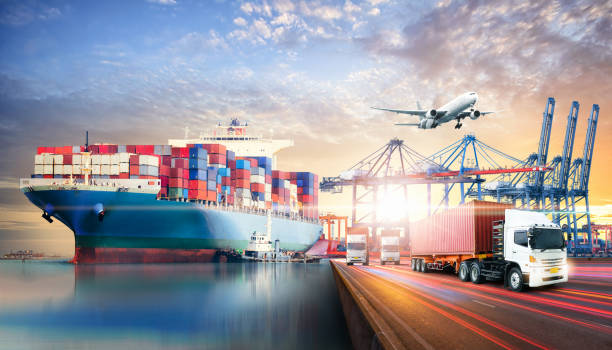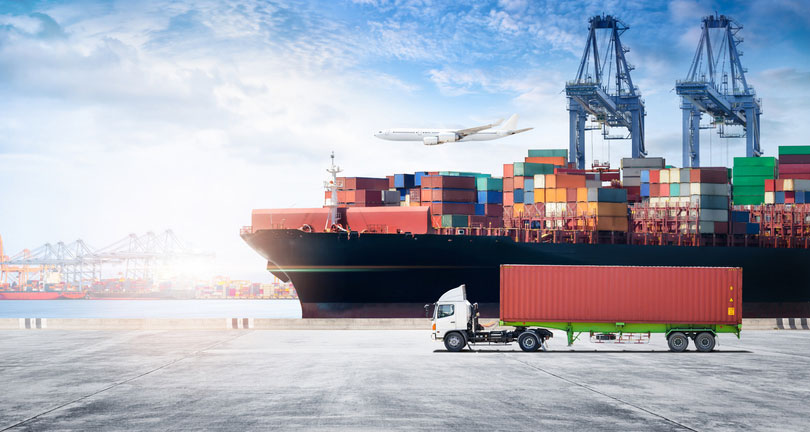Enhancing Logistics with Data Analytics
The Role of Data Analytics in Logistics
Data analytics plays a pivotal role in enhancing logistics operations by providing actionable insights that drive decision-making. It enables businesses to analyze patterns, predict trends, and identify areas for improvement. By leveraging big data, companies can optimize routes, manage inventory more efficiently, and anticipate potential disruptions.
Implementing Data Analytics Tools
To fully benefit from data analytics, implement tools such as:
- Business Intelligence (BI) Software: These tools aggregate data from various sources and provide comprehensive dashboards for monitoring performance.
- Predictive Analytics: Use algorithms to forecast demand, identify potential risks, and optimize resource allocation.
- Real-Time Analytics: This allows for immediate decision-making based on current data, which is crucial for dynamic and fast-paced logistics environments.
Improving Customer Satisfaction through Logistics
The Importance of Customer Satisfaction
Customer satisfaction is a key driver of business success. Efficient logistics directly impact customer experiences by ensuring timely deliveries, accurate order fulfillment, and transparent communication.
Strategies to Enhance Customer Satisfaction
- Reliable Delivery Services: Partner with dependable carriers and use tracking systems to provide customers with real-time updates.
- Effective Communication: Keep customers informed at every stage of the delivery process, from order confirmation to shipment tracking.
- Flexible Delivery Options: Offer multiple delivery options, such as same-day delivery, pick-up points, or scheduled deliveries to cater to customer preferences.
Building a Resilient Logistics Network
Importance of Resilience in Logistics
A resilient logistics network can adapt to and recover from disruptions, ensuring continuity and reliability. Building such a network involves strategic planning, robust systems, and proactive risk management.
Steps to Build Resilience
- Diversify Supply Chains: Avoid reliance on a single supplier or route. Diversify sources and establish multiple transportation options.
- Invest in Technology: Use advanced technologies like AI and IoT to monitor and manage logistics operations proactively.
- Develop Contingency Plans: Prepare for potential disruptions by having contingency plans in place. This includes alternative routes, backup suppliers, and emergency response strategies.
Training and Developing Logistics Teams
The Role of Skilled Teams in Logistics
Having a skilled and knowledgeable logistics team is essential for efficient operations. Continuous training and development ensure that staff stay updated with the latest industry trends and technologies.
Training Programs and Initiatives
- Ongoing Training: Regular training sessions on new technologies, processes, and regulations.
- Certifications: Encourage team members to obtain certifications in logistics and supply chain management.
- Cross-Training: Develop versatile teams by cross-training employees in different aspects of logistics.
The Future of Global Logistics
Integration of Artificial Intelligence
Artificial Intelligence (AI) is set to revolutionize global logistics by automating routine tasks, enhancing decision-making, and optimizing routes. AI can analyze vast amounts of data to predict demand, identify inefficiencies, and recommend improvements.
Rise of Autonomous Vehicles
Autonomous vehicles, including drones and self-driving trucks, are becoming more prevalent in logistics. These technologies promise to reduce labor costs, increase delivery speed, and minimize human errors.
Expansion of E-commerce
The continuous growth of e-commerce is reshaping global logistics. Companies must adapt to higher volumes of smaller, more frequent shipments, requiring more agile and flexible logistics solutions.
Conclusion
Mastering global logistics is essential for businesses aiming to thrive in the international market. By understanding the key components, leveraging technology, optimizing supply chain management, ensuring compliance, and prioritizing sustainability, companies can enhance their logistics operations. Future trends like AI and autonomous vehicles will further revolutionize the field, offering new opportunities for efficiency and innovation.
FAQs
What role does data analytics play in logistics? Data analytics helps optimize logistics by providing insights into patterns, predicting trends, and identifying areas for improvement, leading to more efficient operations.
How can logistics improve customer satisfaction? Efficient logistics enhance customer satisfaction by ensuring timely deliveries, accurate order fulfillment, and transparent communication.
What are the benefits of a resilient logistics network? A resilient logistics network can adapt to and recover from disruptions, ensuring continuity and reliability, which is crucial for maintaining service levels.
How can companies train their logistics teams effectively? Companies can train their logistics teams through ongoing training sessions, certifications, and cross-training initiatives to keep them updated with industry trends and technologies.
What future trends will impact global logistics? Future trends such as the integration of AI, autonomous vehicles, and the expansion of e-commerce will significantly impact global logistics, offering new opportunities for efficiency and innovation.






